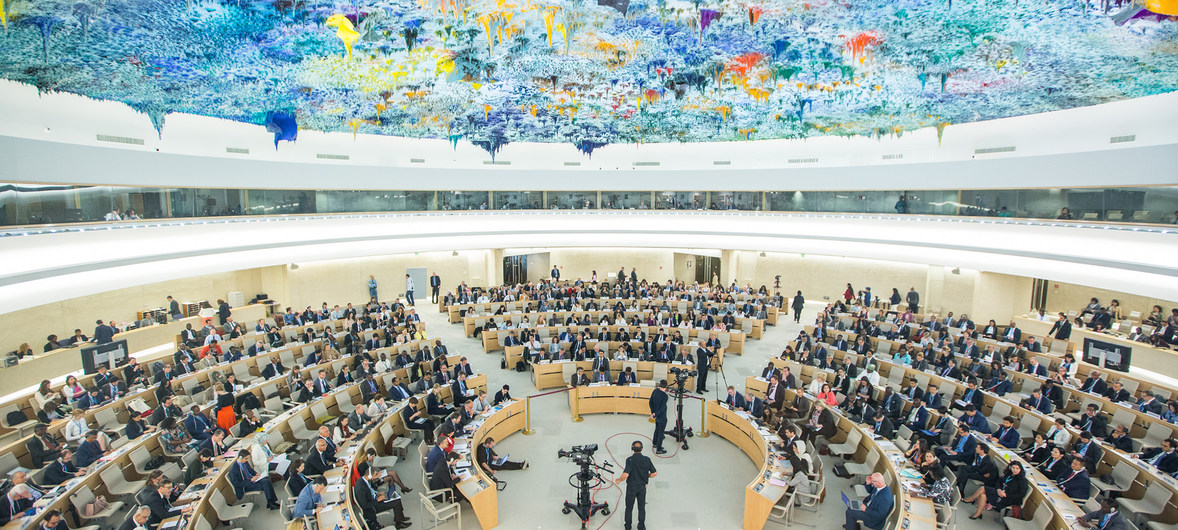Human Rights Council: Biennial Panel on Youth and Human Rights - the role of youth in fostering peaceful societies

On September 16, 2025 the international community together with youth representatives reunited on occasion of the Biennial Panel discussion on youth and human rights. This year’s theme was the “role of youth in fostering peaceful societies and creating an enabling environment for the enjoyment of human rights by all”. The event took place within the context of the 60th session of the Human Rights Council (HRC).
The discussion emphasized the central role of young people as key agents of peaceful change and as bridge-builders in an increasingly polarized society. With a population of 1.9 billion, youth represent an immense resource of energy, ideas, and innovation, and are considered to be not only the leaders of the future, but also active protagonists of the present.
The UN Deputy High Commissioner for Human Rights Ms. Nada Al-Nashif opened the session recognizing a global pushback on freedom of expression for young people, who are increasingly exposed to threats, surveillance and discrimination with marginalized groups particularly affected. She also highlighted the urgent need to regulate technological tools in order to protect mental health and address phenomena such as cyber bullying. She called on governments to work with, and not against, youth. Furthermore, the UN Assistant Secretary General for Youth Affairs, Felipe Polliet, reiterated the necessity to achieve power sharing and that youth participation must become a daily practice.
The discussion was enriched with concrete examples of the success of youth leadership.
Ms. Nelly Monzon presented the Nab’il Project in Guatemala, which fosters meaningful youth participation, enabling young people - particularly indigenous and Mestizo youth - to influence decision-making at both the community and municipal levels. Mr. Hamish Nott of the Scottish Youth Parliament, showcased how youth participation led to meaningful reforms, including the incorporation of the CRC into national legislation and free travel for those under 22. Ms. P. Rao, Global Advocacy and Programs Advisor at SAIH, highlighted the risks young human rights defenders face, echoing points raised by the Deputy High Commissioner.
Mr. B. Sonko, Co-Founder and National Programmes Coordinator of Peacehub Gambia, emphasized the need for increased accountability and transparency of governments.
In this context, Italy stressed the appalling impact of conflicts on the young generation - from denial of education to displacement and loss of life - while recognizing youth as agents of peace and justice. Italy acknowledged that to make participation transformative, barriers such as lack of resources, marginalization, and threats against young defenders must be removed. Finally, Italy reaffirmed its commitment through the development of its National Action Plan on Youth, Peace and Security Agenda, aimed at ensuring meaningful youth participation in advancing peace, safeguarding rights in conflict, and fostering a culture of dialogue and mediation.
From the Panel emerged that investing in youth is not charity, but a strategic and necessary investment to build pacific, inclusive and rights-respecting societies. It highlighted how young people are not just tomorrow’s leaders, but active protagonists of today and they must actively and meaningfully contribute to the decision-making processes.

